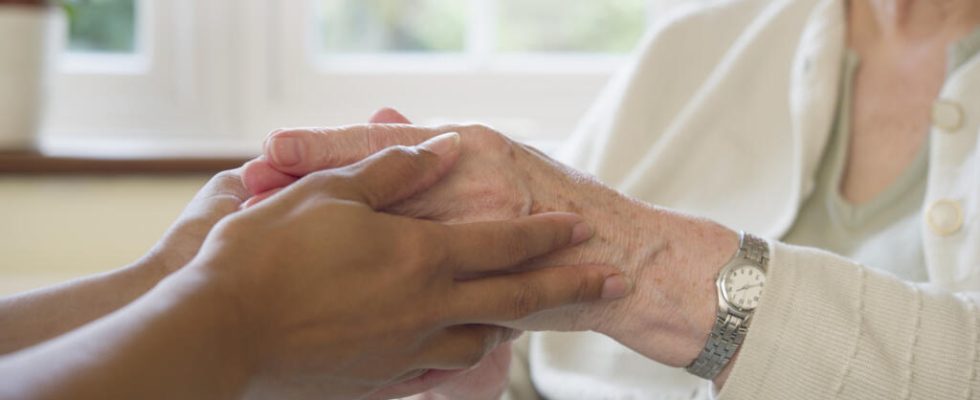On the occasion of National Carers’ Day, the French Minister of Solidarity Aurore Bergé presented this Friday, October 6, a plan to help these caregivers a little more, who really need it.
3 mins
Around a sixth of the French population helps a loved one with a disability, loss of autonomy or a chronic illness. These people then find themselves doing the work of a caregiver, without necessarily having the skills, with consequences on their own health and their social life. The associations point out that some neglect their own health because they cannot leave their spouse alone to consult a doctor, or even have an operation. Caregivers sometimes deprive themselves of activities and feel alone, because it is difficult to find help at home or a treating doctor.
For ” caring for those who care for others », the Minister of Solidarity Aurore Bergé therefore presented this Friday, October 6, her “Act for caregivers 2023-27 strategy”. This plan provides in particular for the creation of 6,000 additional “respite” places, which will be added to the existing 34,000, the flagship announcement of this plan. These places are used to entrust the loved one being cared for, often for a day, to a reception structure, in order to give the caregiver some respite. The government wants to guarantee them a minimum of fifteen days of rest per year.
The government plan also promises 650 new places in temporary reception for disabled people, bringing them to 4,000. In addition, medical-social establishments or services will open 600 places during holidays and weekends.
At least nine million French people care for a disabled or elderly parent. There are more and more of them with the aging of the population, according to the associations. A heterogeneous population, with very varied levels of commitment, noted the Drees in a May 2023 study: the statistical service of social ministries estimated at 1.8 million “ most impacted » – those who devote more than 20 hours per week to the person being cared for.
Accumulate several leaves of absence and lead a professional life
A person can be a caregiver at several points in their life, to take care of a disabled child, then an aging parent. But she could only take one year of caregiver leave during her life. It will now be possible to take leave per person assisted: “ You will no longer have to choose whether to be compensated to accompany your child or to accompany your parent », Explained the Minister responsible for Disability, Fadila Khattabi.
Barely presented, the government plan provoked reactions. The Je t’Aide collective judges the extension of caregiver leave “ interesting » but regrets that he is paid the minimum wage and not the salary. And she regrets measures described as “ paltry compared to the needs of millions of caregivers, their fatigue, their isolation, their precariousness “. The French Association of Carers, for its part, judged that the announcements seemed to go “ in the right direction ”, but says it remains “vigilant about their operational implementation”. Doctor Hélène Rossinot, public health and social medicine doctor, specialist in supporting caregivers, judge for his part the whole plan extremely disappointing “.
Aurore Bergé also signed a “commitment charter” with large companies, committing them to lift the “taboo” on these situations and provide greater support to their employees. “You can be a caregiver and lead a professional life,” she said. Because many caregivers reduce their working hours, or even resign, notes association manager Morgane Hiron. The caregivers are “ misinformed ” And ” little detected “, she says.
Read alsoWhat are the main difficulties faced by mental health caregivers?
(And with AFP)
